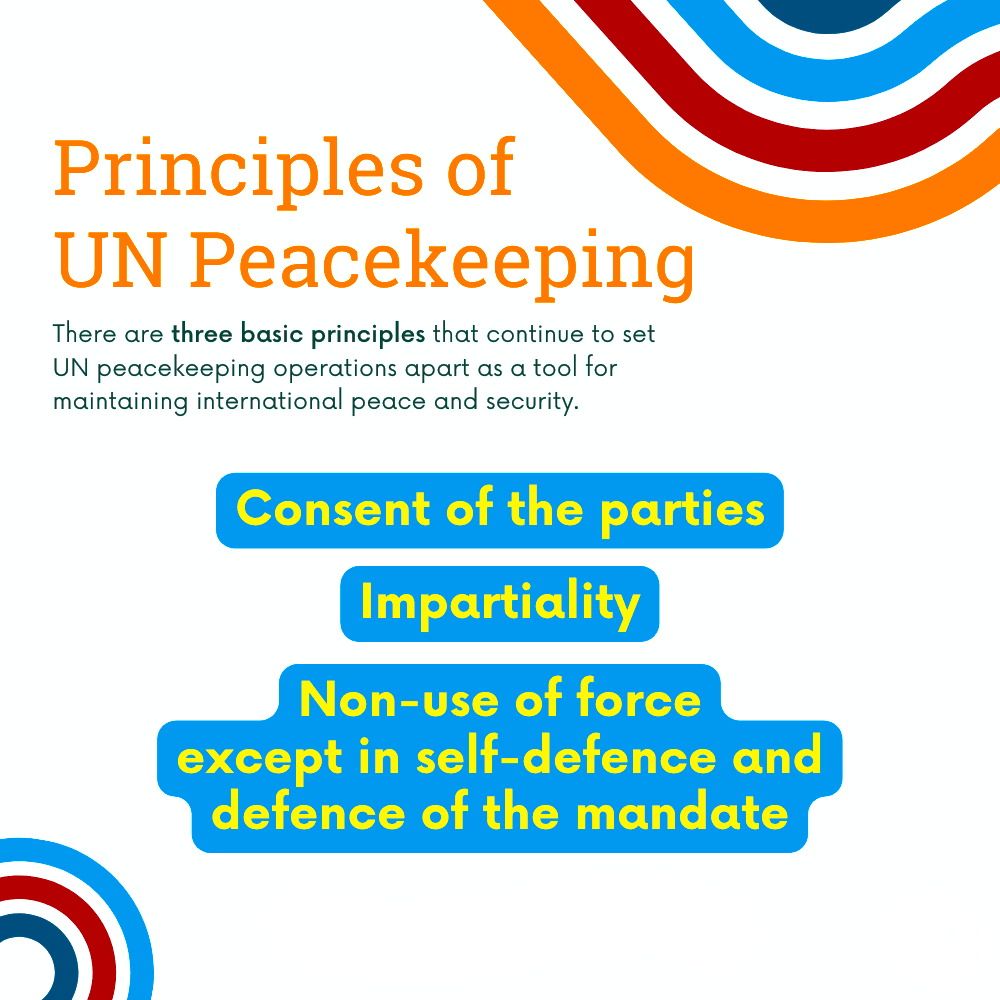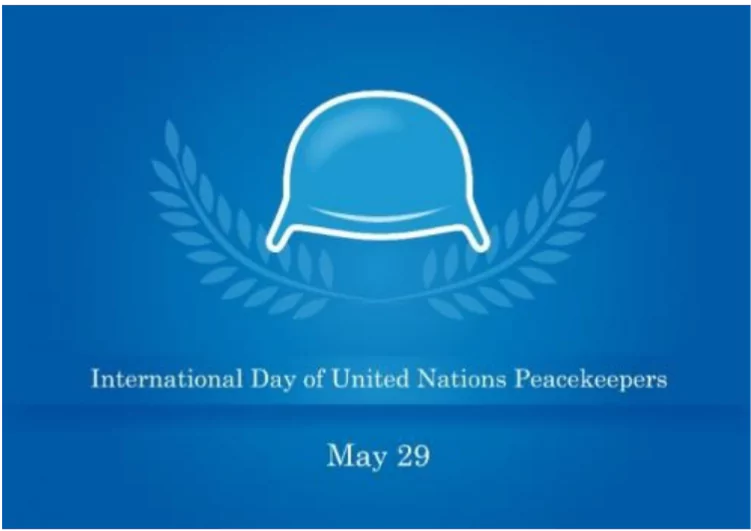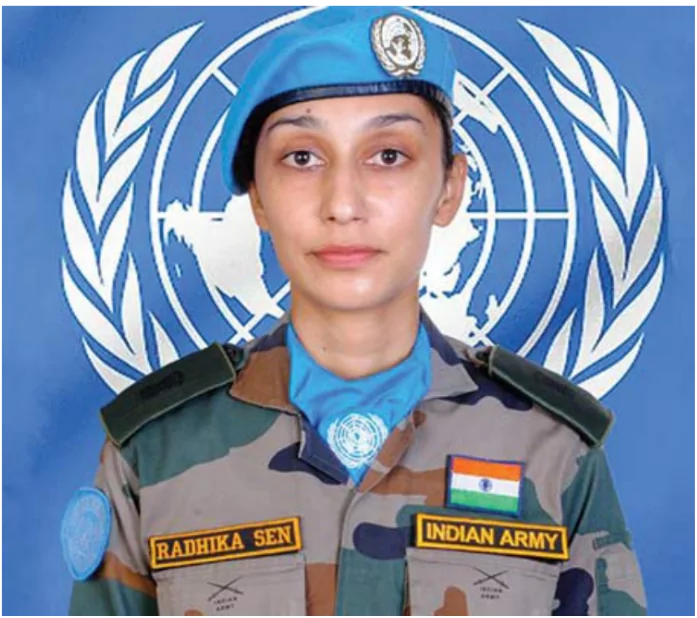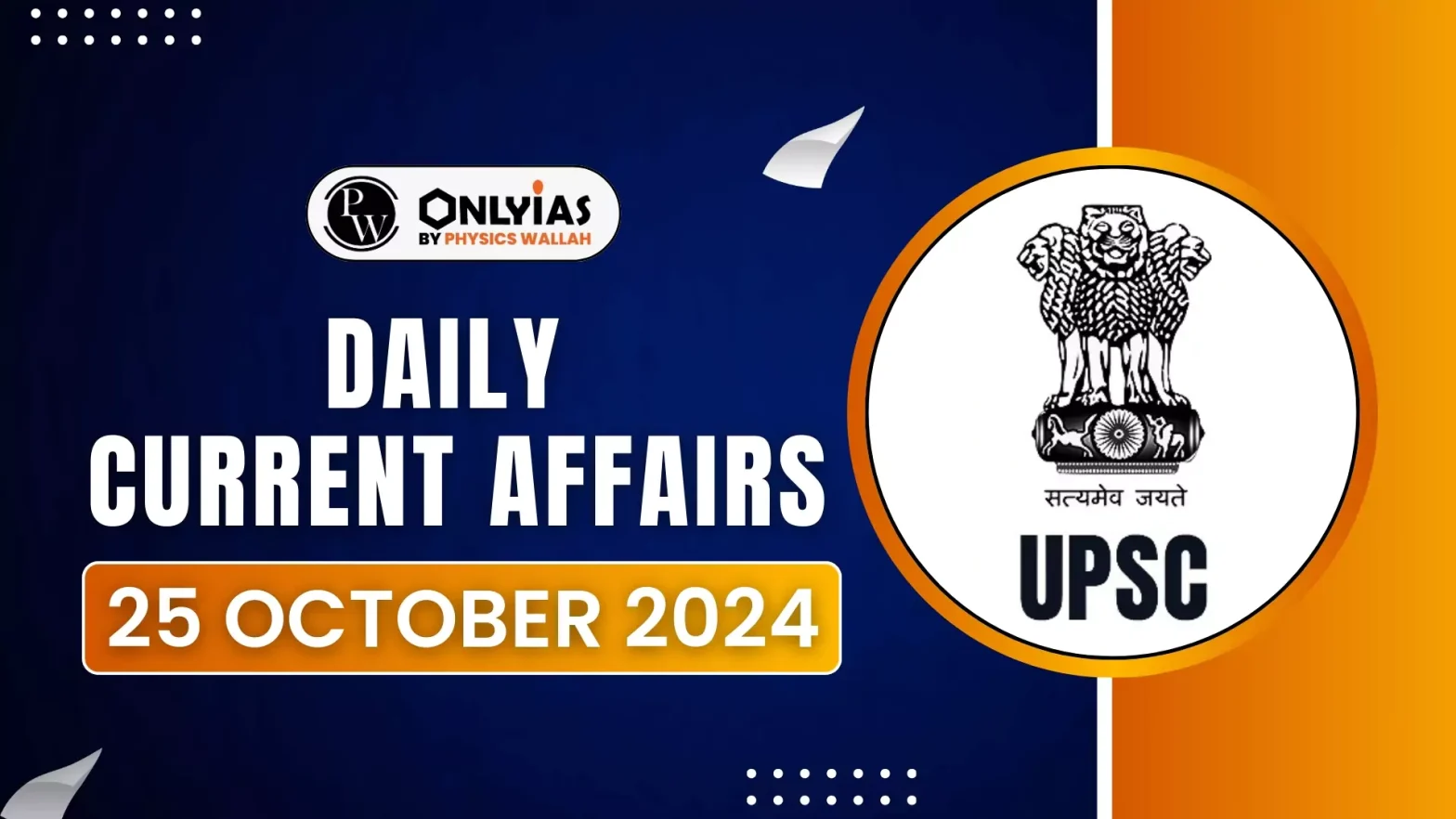In recent incidents of global conflicts, the role of UN peacekeeping is very crucial. The ‘bystander’ should be brought centre-stage and held accountable alongside the perpetrator for crimes against humanity.
About UN peacekeeping
UN Peacekeeping is a joint effort between the Department of Peace Operations and the Department of Operational Support.
- It comprised civilian, police and military personnel.
- Purpose: Helps countries torn by conflict create conditions for lasting peace by providing security, political, and peacebuilding support.
- Strengths: Legitimacy, burden sharing, and ability to deploy troops globally; combines military, police, and civilian peacekeepers.
- Structure: Guided by the UN Security Council with mandates specific to conflict situations.
Enroll now for UPSC Online Course
About Department of Peace Operations
- The Department of Peace Operations is a department of the United Nations charged with the planning, preparation, management, and direction of UN peacekeeping operations.
- Founded: March 1992
|
- The first UN peacekeeping mission was established in May 1948.
- The UN Security Council authorised the deployment of a small number of UN military observers to the Middle East to form the United Nations Truce Supervision Organization (UNTSO)
- To monitor the Armistice Agreement between Israel and its Arab neighbours.
UN Charter: Maintaining Global Peace
- Chapter VI: Focus on peaceful dispute settlements.
- Chapter VII: Authorises Security Council for armed force in aggression cases, member-states provide necessary forces.
- Chapter VIII: Promotes regional enforcement, authorised by Security Council.
|
Principles of UN Peacekeeping

- UN Peacekeeping is guided by three basic principles:
- Consent of the Parties: Operations require consent to avoid becoming a party to conflict.
- Impartiality: Peacekeepers must remain unbiased while implementing mandates.
- Non-Use of Force: Force is only used for self-defence or to protect the mandate.
Mandates and Functions
- Conflict Prevention: Prevent outbreak or spill-over of conflicts.
- Ceasefire Stabilization: Deploy post-ceasefire to stabilise regions.
- Peace Agreement Implementation: Assist in implementing comprehensive agreements.
- Political Transition: Support democratic and stable governance transitions.
- Humanitarian aid: Delivering humanitarian aid, supporting refugee reintegration, and promoting environmental sustainability.
Check Out UPSC CSE Books From PW Store
Second-Generation Peacekeeping Missions
- Second-generation peacekeeping missions are a more complex and diverse type of UN peacekeeping operation that began after the Cold War.
- Multidimensional Approach: Involves military, police, and humanitarian roles, addressing internal conflicts, state-building, civil administration, elections, and refugee repatriation.
- Intra-State Focus: Shifted from interstate to intrastate conflicts, operating within societies and among civilians.
- Inclusion of Major Powers: Increased participation of personnel from major countries.
- Reduced Neutrality: Missions often perceived as supporting specific local groups or ideologies.
- Examples:
- Namibia (UNTAG): Oversaw independence and democratic elections.
- Cambodia (UNTAC): Conducted elections and repatriated refugees.
- Angola (UNAVEM): Verified peace agreements and supported reintegration.
|
Contributions to Conflict Resolution
- Conflict Prevention: Deploying peacekeepers in high-risk areas prevents conflicts from escalating (e.g., Cyprus and Lebanon).
- Ceasefire Monitoring: Peacekeepers help monitor and verify ceasefires, supporting peace agreements between conflicting parties.
- Humanitarian Support: Peacekeepers facilitate humanitarian aid by securing safe corridors and aiding relief organisations.
- Elections & Governance: Peacekeepers assist in the establishment of democratic institutions and organise elections (e.g., Timor Leste, Cambodia).
- Capacity Building: They support local authorities in post-conflict reconstruction and training local police forces for future stability.
Successes and Failures of UN Peacekeeping

- Achievements in Peacekeeping
- Since 1948, it has helped end conflicts and foster reconciliation by conducting successful peacekeeping operations in dozens of countries, including Cambodia, El Salvador, Guatemala, Mozambique, Namibia and Tajikistan.
- Successful UN peacekeeping missions: Cambodia, Mozambique, Sierra Leone, Angola, Timor Leste, Liberia, Kosovo.
- Recognition: Awarded the Nobel Peace Prize in 1988.
- Failures:
- Rwanda (1994), Bosnia (1995) and Mali (2023): UN failed to protect civilians.
- Recent Failures: UN’s inability to act decisively in Ukraine and Israel-Gaza conflicts.
- Sexual abuse: Accused of sexual abuse and exploitation in many countries, including Haiti, Bosnia, Cambodia, East Timor, Iraq, and the Democratic Republic of the Congo.
Check Out UPSC NCERT Textbooks From PW Store
Challenges and Limitations of UN Peacekeeping
- Veto power: The increasing polarization of the P5 members has led to frequent use of veto power, which can prevent the timely deployment of peacekeepers.
- For example, in 2023, the US vetoed a resolution calling for humanitarian pauses in Gaza.
- Resource Constraints: The need for adequately trained and well-equipped forces can limit effectiveness.
- Political Impediments: The Security Council’s veto power can hinder rapid intervention, as seen in the Rwanda genocide.
- Complex Mandates: Peacekeepers sometimes face mandates with unclear objectives, making it difficult to act decisively, e.g., in recent conflicts in Ukraine and Gaza.
- Changing Nature of Conflicts: Modern conflicts involve complex urban warfare, cyber elements, and non-state actors, which traditional peacekeeping isn’t equipped to handle.
- Accusations of Bias: UN forces sometimes face allegations of partiality, risking their credibility and mandate in the conflict zone.
- Credibility Crisis: Historical failures continue to haunt UN peacekeeping’s reputation.
- Regional Alternatives: Regional organisations like African Union’s peace operations in Somalia (ATMIS) are increasingly taking lead roles in peacekeeping operations.
India’s contribution in peacekeeping missions
- Troop contributions: India has contributed more troops than any other country, with over 253,000 personnel serving in 49 UN missions since 1948.
- As of December 31, 2023, India has deployed 5,901 troops across 12 UN peacekeeping missions.
 Women in Peacekeeping: In 2007, India became the first country to deploy an all-women contingent to a UN peacekeeping mission.
Women in Peacekeeping: In 2007, India became the first country to deploy an all-women contingent to a UN peacekeeping mission. -
- Recently, Major Radhika Sen, an Indian woman peacekeeper, who served with the UN mission in Congo, will be honoured with a prestigious military gender advocate award.
- Leadership: India has provided and continues to provide force commanders for UN missions.
- Support: India has also provided logistic support, peacekeeper training, and capacity development for the UN, host nations, and partner nations.
- The Indian Army has established the Centre for United Nations Peacekeeping (CUNPK) in New Delhi to impart training in peacekeeping operations.
- Trains more than 12,000 troops every year.
- Trust Fund: India was the first country to contribute to the Trust Fund on sexual exploitation and abuse, which was set up in 2016.
- Recognition: Indian peacekeepers have been praised for their efforts and high standards of performance.
- Over 175 Indian peacekeepers have died while serving in UN missions.
- Commitment: India’s commitment to UN peacekeeping is based on the ancient Indian principle of Vasudhavia Kutumbakam, which means “the whole world is my family”.
Way Forward for Strengthening UN Peacekeeping
- Political Solutions and Conflict Resolution: Enhance diplomatic and political approaches to prevent, manage, and resolve conflicts.
- Expansion of Security Council Membership: Proposed to include emerging powers like India and South Africa to enhance representation and decision-making balance.
- Limit Veto Power: Limiting or modifying veto use in humanitarian crises could enable faster deployment of peacekeeping forces.
- Strengthening Mandates: Empower peacekeeping forces with clearer mandates to protect civilians and use force when necessary to prevent large-scale atrocities.
- Women, Peace, and Security: Prioritize the integration of the Women, Peace, and Security (WPS) agenda by increasing the number of female peacekeepers and ensuring gender perspectives in all peacekeeping activities.
- Protection of Civilians and Human Rights: Strengthen mechanisms to safeguard civilians, especially in volatile conflict zones, by improving operational responsiveness and strengthening partnerships with local communities to enhance trust and security.
- Safety and Security of Peacekeepers: Invest in advanced technology, including surveillance and early-warning systems, and improve training and resources to enhance peacekeepers’ safety in high-risk environments.
- Performance and Accountability: Establish stringent performance and accountability frameworks to ensure that peacekeeping components meet high standards.
- Regular assessments and transparent reporting mechanisms should be applied to all peacekeeping missions.
- Effective Partnerships: Foster collaborative efforts with regional organisations, host governments, and other stakeholders.
- Ethics and Conduct: Enforce strict codes of conduct to maintain the credibility and integrity of peacekeeping missions.
Enroll now for UPSC Online Classes
Conclusion
Despite limitations, UN peacekeeping remains a critical tool in preventing conflict escalation and supporting global peace. However, structural reforms and greater efficiency are needed to adapt to modern-day conflicts and enhance its role as a proactive, rather than reactive, peace enforcer.
![]() 25 Oct 2024
25 Oct 2024



 Women in Peacekeeping: In 2007, India became the first country to deploy an all-women contingent to a UN peacekeeping mission.
Women in Peacekeeping: In 2007, India became the first country to deploy an all-women contingent to a UN peacekeeping mission.